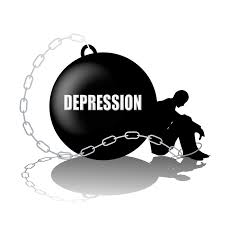Like the word implies, depression is a state of being ‘pressed down.” Most of us are familiar with the occasional feeling of being ‘under’ and ‘low.’ It is perfectly normal to feel sad, moody and downcast some of the time. It is usual to sometimes feel gloomy, overwhelmed and lethargic. But the critical question is“Is it Clinical?”
Clinical depression begins to set in when an individual starts to have the feelings described above interfering with different aspects of their life and not enabling them to function properly at work or at school for up to 2 weeks. The most peculiar symptom of clinical depression is the recurrent thoughts of suicide- ending it all. Suicide is the ultimate consequence of clinical depression.
To say that clinical depression has reached epidemic proportions in these parts, would be stating the obvious. A few days ago, on the 2nd of October, a young man tried to take his own life by jumping off the 3rd Mainland Bridge. Though he was rescued, he eventually ‘succeeded’ in dying in the hospital a few days later. According to a World Bank report in February 2018, 22% of Nigerians are chronically depressed.

In her book ‘Dust to Dew,’ Betty Irabor describes depression aptly when she writes “Depression is like being trapped between elevator floors. When the elevator finally opens for you to escape, you’re too afraid to step out into the real world. You have the keys to the door, but you’re afraid to unlock it because you’re trapped by your fears…”

Describing her experience she writes“…it seemed everywhere I looked all I saw were dark clouds. I couldn’t see a single flicker of light on the horizon. Everything made me feel as if I was in the deep end of a pool, each time I tried to come up for air, something invisible held me down…”
Though the symptoms of depression can be unique to different individuals, it most commonly manifests as difficulty concentrating, remembering , making decisions fatigue ,insomnia, excessive sleeping, irritability, overeating, loss of appetite, feelings of guilt, worthlessness, hopelessness , helplessness and suicidal ideation.
In case you are currently struggling with some of these symptoms, the following will help:
• Eating right: Your food affects your mood! Certain nutrients like Vitamin D have been proven to help the mood. Proteins like turkey, chicken and mackerel enhance the mood. Walnuts, cashew nuts and tiger nuts are mood boosters too. Incorporating green tea can also help.

• Exercising: 30 minutes of brisk walking 3 times a week goes a long way. Exercise need not be a structured dance or gym class. Dancing in your room or jogging round your house can do the trick. Exercise is a tested method of improving the mood.
ABOVE ALL
• Talking: Talking is therapeutic because it helps demystify the thoughts that activate depression. Talking with a professional would also help assess the severity of the depression and where necessary refer for medical attention.
Always remember… once you can say it, you can SLAY it.
Best Regards,
Chiadi Ndu
& all of us @ BTH WELLNESS AND THERAPY

